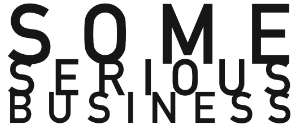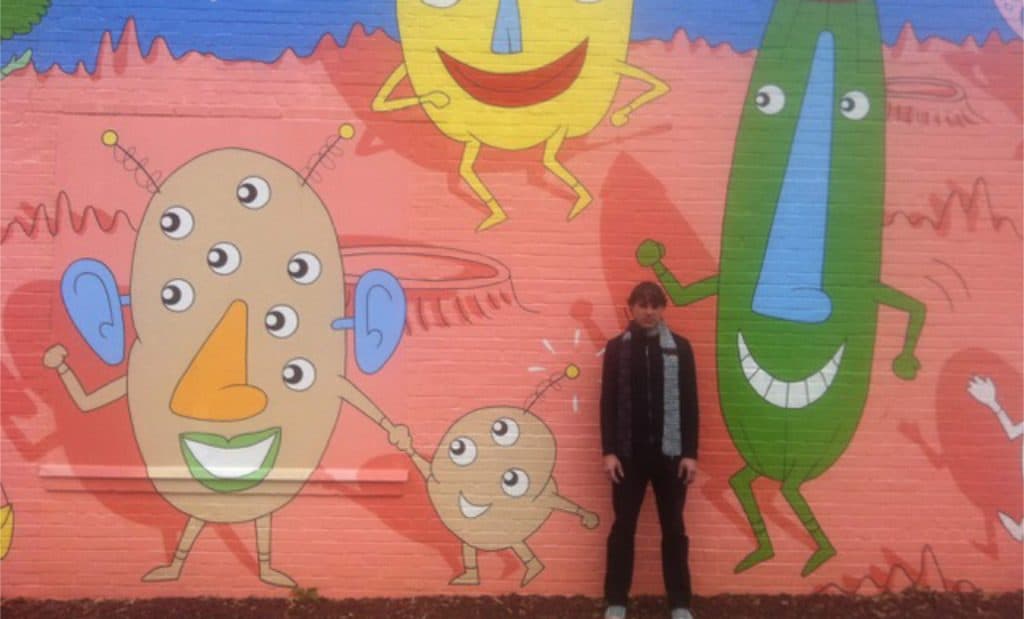Describe your ideal workspace.
A sound-rich environment, preferably an unattached garage-type studio in nature but still close to an urban area, where I could walk through trees and creek beds for 30 minutes and into “town,” where I can hear and document a dump truck or a stray siren. The studio would include stations such as a sound/rehearsal area and a photo enlarger/darkroom hideout.
At this point, I’d take a space. Any space. I tend to dwell in cozy places, even in sprawling cities like Albuquerque where I’m currently living, working and creating in an approximately 450-square-foot casita.
What has been the most significant challenge you’ve faced that you overcame to continue your art practice?
At the end of 2018, I genuinely considered quitting music after a year of canceled shows, promised album releases that never materialized, and multiple pieces of equipment breaking beyond repair. A December tour was abandoned at the last minute due to scenarios partially out of the band’s control. Demoralized, I started turning down gigs (which I never do) and telling people I was done.
When I first started playing, I told myself that I would continue as long as it remained fun. It was far from enjoyable at that point.
I eventually realized that I was taking the whole thing and myself way too seriously, and that relieved the pressure. The year 2019 ended up productive and a blast.
What are habitual internal fears and bogeymen that come up for you around making art—excluding universal concerns of time, space, money, inadequacy, and recognition?
The fear of starting something from scratch is a big obstacle for me. A blank-slate project, even if there’s a decent idea that can help get if off the ground, is often intimidating and insurmountable. I imagine that the infinite possibilities are exciting for some artists. For me, it immediately shuts me down. The good thing is that once I start something, I’ll finish it pretty much every time.
What surprises you most about what you are doing right now in your practice? If the 9-year-old you could see you right now, what do you think s/he would think?
Aside from writing, I had no concept of “art” until middle school. My mom was a middle school and high school English teacher, and I gleaned my passion for books and writing from her. But I wasn’t aware of “fine arts” until I sang in the middle school choir.
Later, I was interested in drama class, but the teacher hated athletes. (I played sports in school.) I thought this was dumb, especially because the drama teacher was my choir teacher and had known me for two years. Once I started playing sports, she would ignore me in the hallways, so I never enrolled in drama.
For years afterwards, I was reticent to try art, either as a self-practice or taking a class. I’ve continued to witness this needless dichotomy, where my art friends talk trash about “jocks” and my sports-loving friends refuse to give an art exhibit a shot. The judgment on each side is similarly harsh and also silly. All that to say is that I’m shocked that I’m making art in public at all, especially because I grew up in a “sports family.” We need more art-jocks.
Nine-year-old me would probably think, “Why is that freak recording the post attached to the basketball hoop?” Which is something I did the other day because it makes a cool resonant sound whenever the ball clangs off the rim.
What is your relationship to criticism?
I wish people would honestly tell me what they thought of my output (recording, performance, visual pieces), whether it’s mostly good or completely bad or a mix. But most importantly, why they thought it ruled or sucked.
I’ve been a working journalist for nearly two decades and some of my editors have been ruthless. Like, “This draft is tripe, maybe I should’ve never hired you” brutal. That’s hard to hear on its own, but some of my editors have then suggested how to make improvements. Those editors always turn out to be my favorite because their feedback gave me the opportunity to grow.
What would be the most thrilling moment or situation in time-space to find your art being enjoyed?
In any out-of-context situation that makes people uncomfortable en masse. I’d love to play free jazz during a presidential inauguration, or a harsh noise wall set with a generator in the parking lot of a big box store as shoppers line up for Black Friday deals. I wouldn’t want to be arrested or physically harmed, but rather an annoyster that challenges someone’s conventions about music. I also dream that maybe one person in the crowd or the queue would be stoked and that we could become friends forever.
What do you feel is most invisible to others in your practice?
The tongue-in-cheek, veiled humor in some of my pieces. I think it’s often lost because I usually perform in so-called serious sound environments—four white walls, the audience sitting in chairs looking all stoic. I feel like there’s something absurd about playing a 25-minute guitar set where not one thing I play sounds like a guitar or affixing a contact microphone to a piece of tape that’s sticking to a metal chair and “playing” the tape chair. It’s ridiculous, and that’s why I’d be thrilled if someone laughed out loud during one of my sets.
How important is it to you that others connect and understand and appreciate your work?
I’m just thankful—and shocked a lot of times—that a handful of people connect to what I do. It’s humbling, and it’s something that I never take for granted.
Listen to Steve’s latest release, Full Names, Alphabetical Order, with James Fells and Steve Zimmerman on Cool Records.

